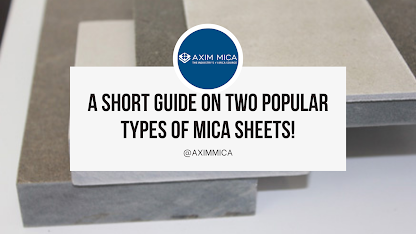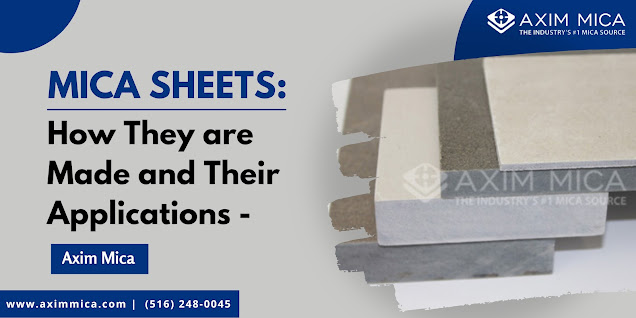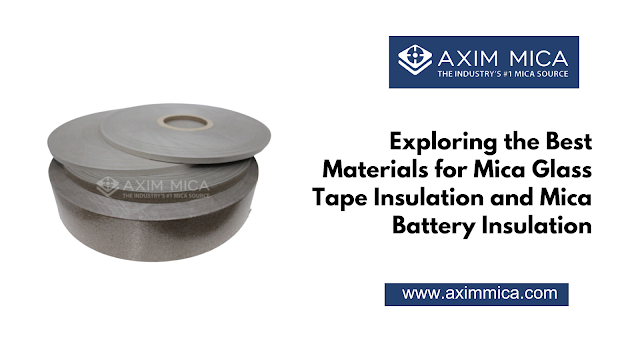Things to Consider While Choosing Industrial Thermal Insulation Material
Industrial insulation materials play a key
role in the safe operation of various products and industrial equipment. An
end-user might not be aware of how things are done, but industry experts have a
good idea of what it takes to make a product safer for use. For instance, a
simple product such as a hairdryer or an electric room heater needs reliable
thermal insulation of the heating element to make it safe for use. Similarly, almost
every industry uses various industrial materials like mica material, fiberglass, CMS wool, and Nomex for the thermal
insulation of various products.
Maximum temperature range
The first thing to consider is the maximum temperature range, which in turn depends on your product’s safety requirements. For example, mica sheets are stable up to high temperatures in the range of 1200-1600 °C, while fiberglass provides thermal insulation up to 600 °C. Therefore, you will need to choose thermal insulation material based on your maximum temperature requirements. However, some industries require only the use of UL-rated products, meaning that you will also need to take said UL-rating of the insulation products into account before making your choice.
Resistant against elements
There are many materials that provide great thermal insulation, but they are less than stellar when exposed to external elements like moisture, chemicals, and extreme weather. For example, Nomex provides decent thermal insulation, but the material has a tendency to absorb moisture. You need to make sure that the insulation material you are choosing has a good chemical resistance. Mica is chemically inert and offers the chemical resistance needed.
Surface features
One must consider surface features like touch temperature and exposure safety risks when choosing a material for thermal insulation. Fiberglass insulation poses a range of safety risks when continuously exposed without safety equipment; mica, on the other hand, is safe to handle.
Versatility
There are many industrial insulation applications that require very thin and flexible insulation that can easily fit complex parts. If you’re look for an insulation material that can be easily converted into thin and flexible sheets without losing its insulation properties, mica is your perfect candidate. Mica can be converted into thin sheets, and due to its light weight, it can be used in a variety of insulation applications.





Comments
Post a Comment